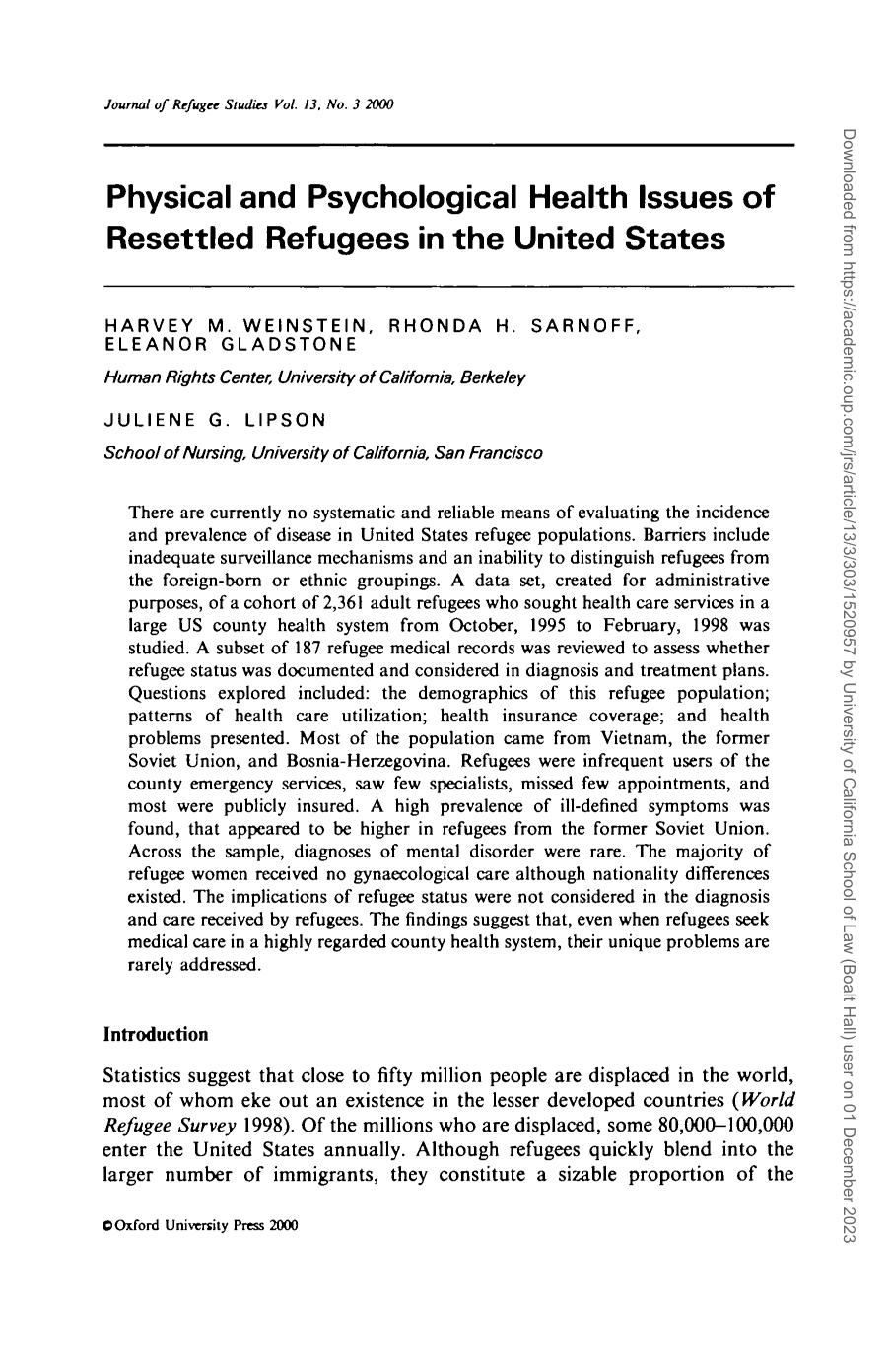Physical and Psychological Health Issues of Resettled Refugees in the United States
Download ReportSummary
There are currently no systematic and reliable means of evaluating the incidence and prevalence of disease in United States refugee populations. Barriers include inadequate surveillance mechanisms and an inability to distinguish refugees from the foreign-born or ethnic groupings. A date set, created for administrative purposes, of a cohort of 2,361 adult refugees who sought health care services in a large US country health system from October, 1995 to February, 1998 was studied. A subset of 187 refugee medical records was reviewed to assess whether refugee status was documented and considered in diagnosis and treatment plans. Questions explored included: the demographics of this refugee population; patterns of health care utilization; health insurance coverage; and health problems presented. Most of the population came from Vietnam, the former Soviet Union, and Bosnia-Herzegovina. Refugees were infrequent users of the country emergency services, saw few specialists, missed few appointments, amd most ware publicly insured. A high prevalence of ill-defined sysptoms was found, that sample, diagnoses of mental disorder were rare. The majority of refugee women receoved no gynaecological care although nationality differences existed. The implications of refugee status were not considered in the diagnosis and care received by refugees. The findings suggest that, even when refugees seek medical care in ahighly regarded country health system, their unique problems are rarely addressed.
